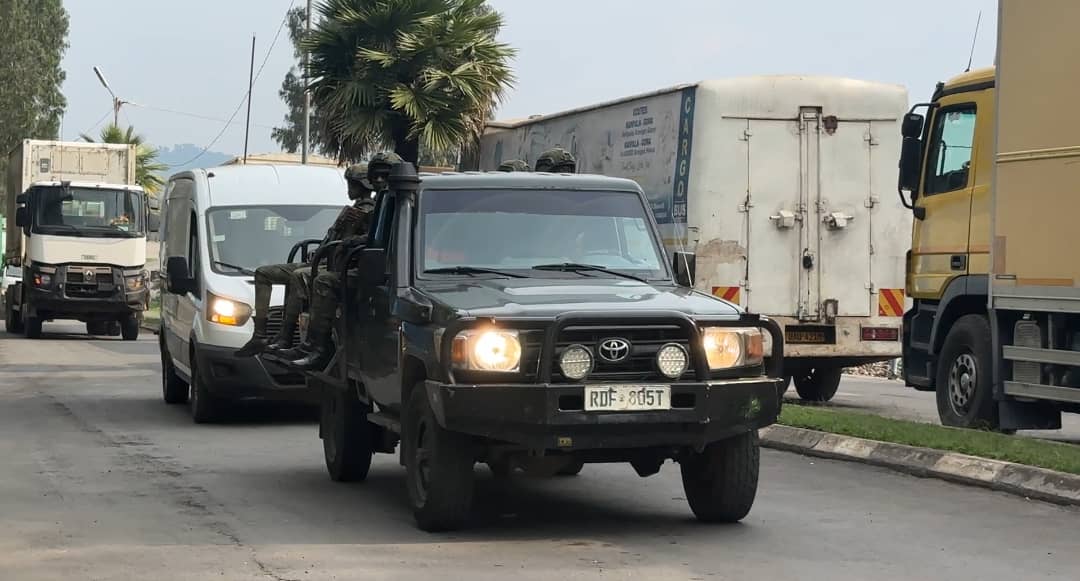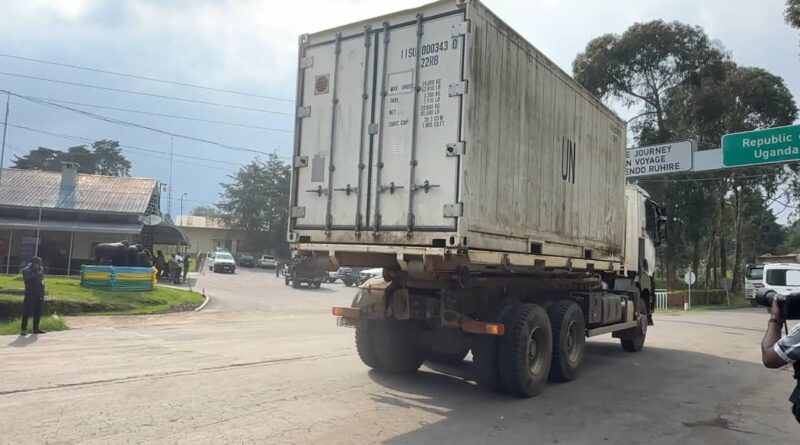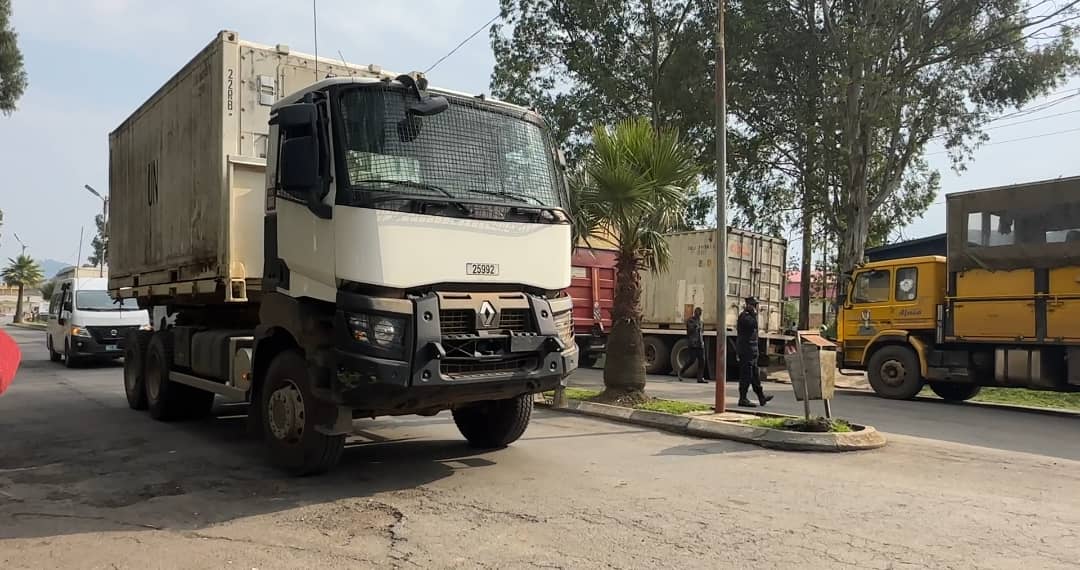South African soldiers’ bodies transported through Cyanika border after DRC clashes
Vehicles carrying the bodies of 14 South African soldiers, who were recently killed in clashes between the M23 rebel group and the DRC’s Armed Forces (FARDC), passed through the Cyanika border, which connects Rwanda to Uganda.
The bodies, transported from Goma in the Democratic Republic of Congo, entered Rwanda and crossed through the La Corniche border crossing in Rubavu District before continuing through the Cyanika border in Burera District, which connects Rwanda to Uganda. The convoy passed at 9:48 PM on Friday, February 7, 2025.
The bodies were in a white truck, accompanied by other vehicles carrying soldiers who were injured during the fighting, as well as those carrying their personal belongings.
The South African soldiers were part of the Southern African Development Community (SADC) mission, working alongside the FARDC to fight against the terrorist group FDLR and other groups operating in the region. They were killed in ongoing battles against the M23 rebel group.
On Tuesday, February 4, 2025, members of the South African Parliamentary Security Committee called on their government to withdraw troops from the DRC, following prolonged fighting between their aligned forces and the M23.
During the meeting, South Africa’s Minister of Defense, Motshekga Angie, appeared before Parliament to explain why South African forces were sent to the DRC and the ongoing casualties they were facing.
In that session, the parliamentarians expressed concerns about how the bodies of their fallen soldiers could be transported back to South Africa, especially considering that Goma’s airport was non-operational. They were also worried about the continued targeting of their soldiers in Goma.
The key questions raised during the meeting centered around the purpose of South African soldiers’ prolonged stay in the DRC and when they might return home. Some parliamentarians accused military leaders and President Cyril Ramaphosa of misleading the public about the reasons behind the continued military presence.
The South African lawmakers also voiced concerns about the collaboration between their forces and the FDLR, a group responsible for the 1994 Genocide against the Tutsi in Rwanda. They considered this alliance a significant risk, stressing that it could lead to severe consequences.
Despite explanations from the Minister of Defense and military officials, the parliamentarians rejected the rationale and emphasized that everything possible should be done to ensure the bodies of the 14 fallen soldiers are returned to South Africa by Wednesday this week.



